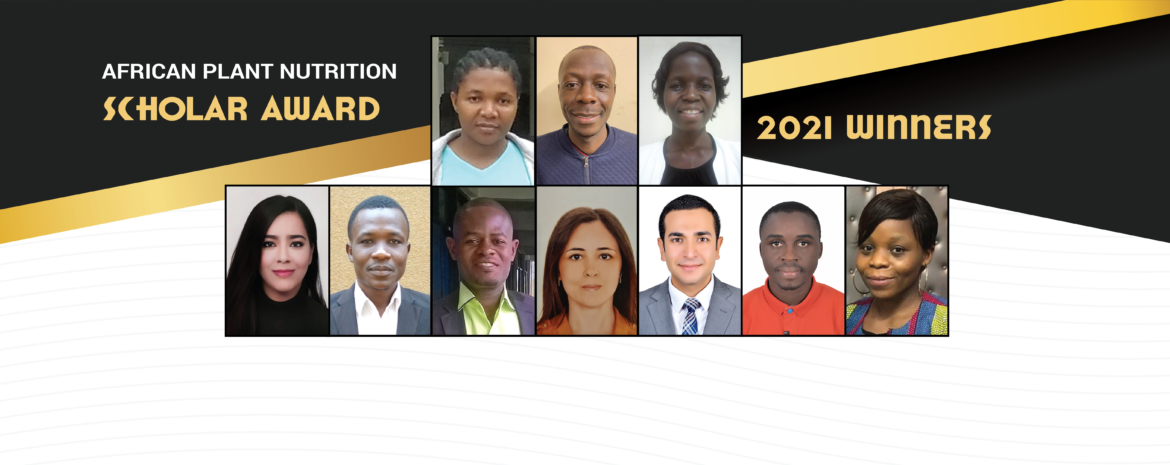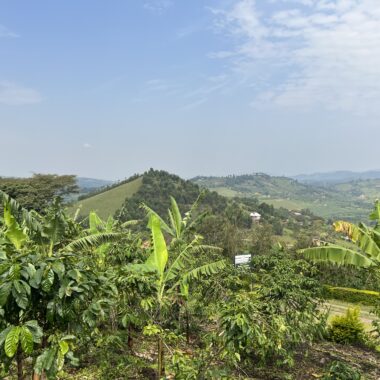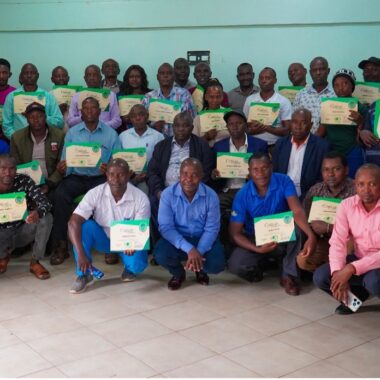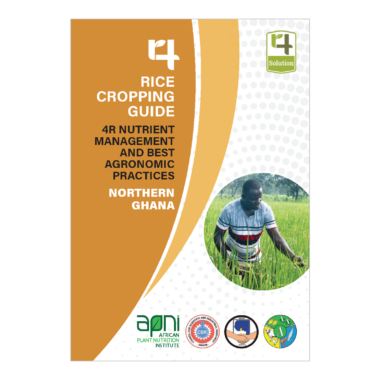2021 Recipients of Plant Nutrition Scholar Award Announced
Awards of USD $2,000 have been conferred to these ten African graduate students enrolled in science programs relevant to plant nutrition and management of crop nutrients.
The awards are made in recognition of their academic and research efforts, and are sponsored by the African Plant Nutrition Institute (APNI), Mohammed VI Polytechnic University (UM6P), and OCP Group.

Ms. Rabiath Féichokpè Raïssa ADIGOUN — Senegal
University of Cheikh Anta Diop of Dakar, Senegal
Ms. Rabiath Féichokpè Raïssa ADIGOUN, is a M.Sc. student of Plant and Microbial Biotechnologies at the University of Cheikh Anta Diop of Dakar (UCAD) in Senegal.
Rabiath’s research is focused on “The Contribution of Organic Biofertilization Associated with an Arbuscular Mycorrhizal Fungus Strain to Micronutrient Bioavailability in Pearl Millet, Cowpea and Sweet Potato Accessions.”
Her work is evaluating the effect of biofertilizers such as arbuscular mycorrhizal fungi (AMF) and Organic Residual Products (ORP) on improving the mineral element content, particularly iron and zinc, and biomass production of local crops such as pearl millet, cowpea and sweet potato.
“The study aims at firstly, selecting the efficient combinations of AMF strain and ORP with potential to allow better plant development within four accessions of pearl millet, cowpea and sweet potato,” explained Ms. Adigoun. “Secondly, it aims at evaluating the effect of the combination of AMF strain and ORP on micronutrient bioavailability in the crop biomass. Ultimately, we are looking to provide farmers with sustainable strategies that can help them obtain high yields while improving the nutritional quality of their local crops.”
Rabiath’s ambition is to acquire adequate knowledge in the area of plant biotechnology and microbiology and enhance her technical and scientific skills to get the background required to contribute to the development of innovative solutions to solve critical problems regarding crop production under climate change to achieve food security in Africa.
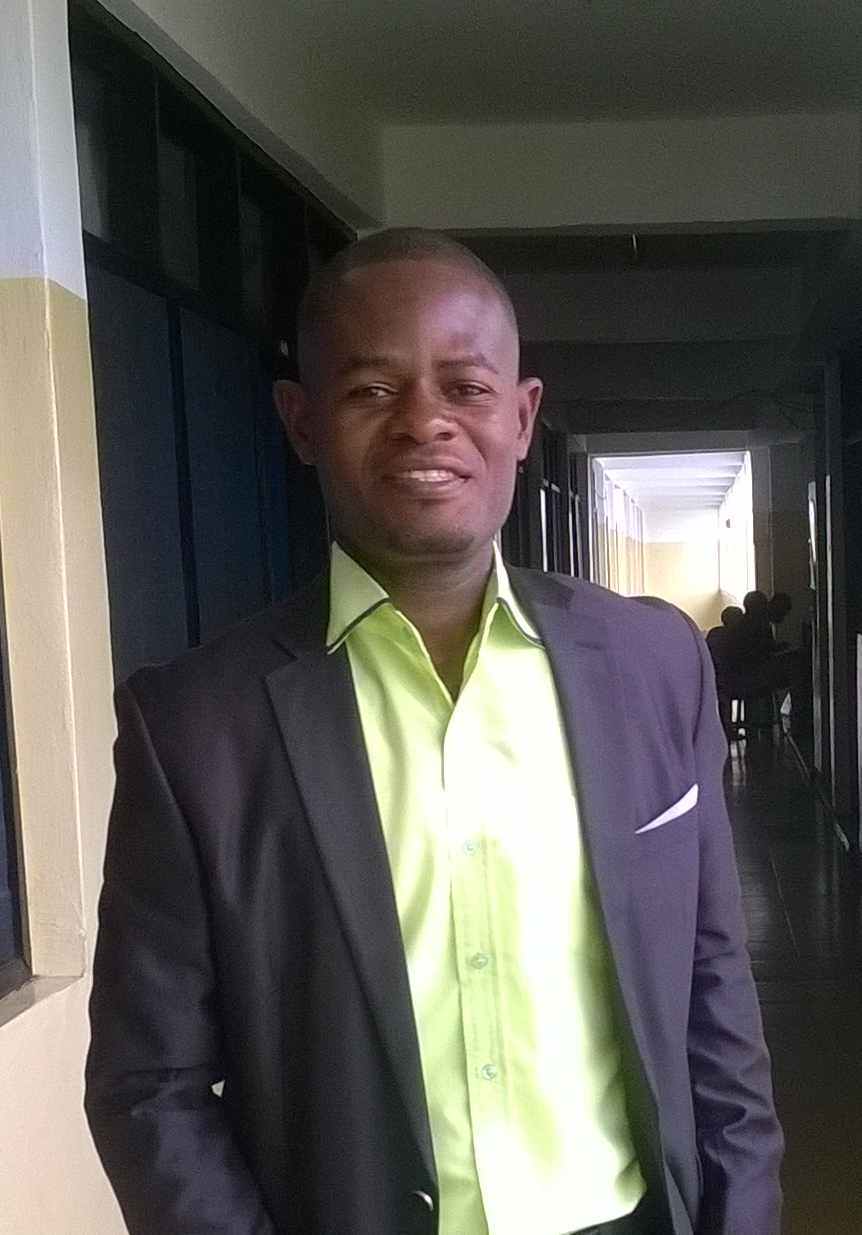
Mr. Bright AGBOMADZI — Ghana
University of Ghana, Accra, Ghana
Mr. Bright AGBOMADZI is an Agronomy Ph.D. student at the Department of Crop Science, University of Ghana, Legon Campus, Accra, Ghana.
Bright is researching “Optimum Nutrients Requirements, Field Performance and Nutritional Quality of Plantain (Musa AAB).” The focus of the research project is on balanced nutrition with much emphasis on micronutrient inclusion in plantain fertilization programs as one of the intervention strategies to alleviate micronutrient deficiencies in humans through food systems enhancement.
“It is expected that at the end of the project, the optimum macro and micro nutrients combination will be established for the production of healthy and nutritious plantain fruits with the right composition and concentration of the selected micronutrients in alleviating their deficiencies in human diets,” explains Mr Agbomadzi.
Bright’s current interests and future career goals are to conduct research to solve problems related to crop production and food security, and to come up with innovative ideas in areas of plant nutrition and soil fertility, sustainable agriculture, integrated nutrients management and precision farming. He also has interests in training university students in the field of agronomy and also to train farmers on good agricultural practices.
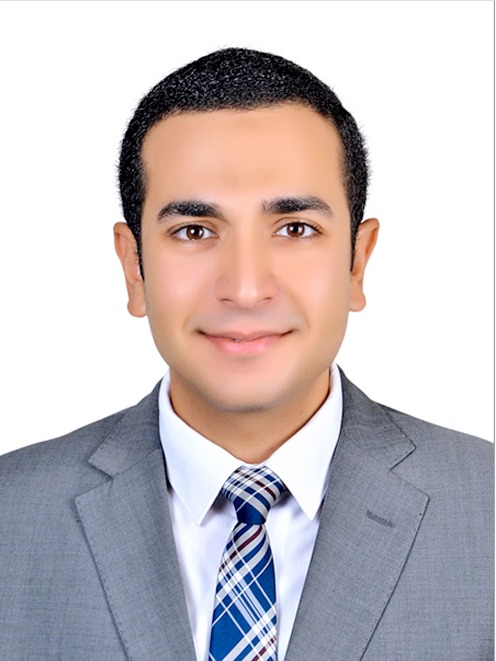
Mr. Mohamed Emam Sayed Amin — Egypt
National Authority for Remote Sensing & Space Sciences, Cairo, Egypt
Mr. Mohamed Emam Sayed AMIN is a Ph.D. student in Agricultural Science at the Faculty of Agriculture, Fayoum University in Cairo, Egypt.
Mohamed’s research program is studying “The Use of Multi-Temporal Satellite Imagery for the Precision Management of Land Resources.”
“Improving crop production is a primary key to filling yield gaps and achieving food security, explains Mr. Amin. “To improve crop productivity, accurate and up-to-date information on agriculture inputs and crop health indicators is essentially needed for optimal crop management. Remote sensing data is then a primary source of crop health information with high time and cost-efficiency.”
His study is mainly targeting the development of remote-sensing-based crop management indicators such as vegetation health indices, and soil/plant nutrients indicators. Expected outputs include: a mobile automated decision support system for agricultural management; delineation of management zones depending grid soil sampling, remote sensing, and yield variability; fertilizer recommendations based on precision nutrient maps; and new crop maps projecting the potential versus actual situations under water scarcity and intensive agriculture.

Ms. Rania BRITAL — Morocco
Ibn Tofail University, Kenitra, and the National Institute of Agricultural Research, Morocco.
Ms. Rania Brital is a PhD student at Ibn Tofail University, Kenitra and the National Institute of Agricultural Research in Morocco.
Her dissertation is titled “Effect of Soil-Rootstock Interaction on Micronutrient Nutrition of Sweet Orange Trees in Morocco.”
“This work is part of a research project carried out by the Soil Fertility Laboratory at the Regional Research Centre of Kenitra with the aim to enhance the productivity and sustainability of Moroccan citriculture through better management of micronutrient fertilization of citrus orchards,” explains Ms. Brital. “In fact, proper micronutrient management is one of the big challenges to be alleviated by Moroccan citrus producers to ensure optimum yields with good fruit quality.”
Rania’s research work focuses on: (i) assessing micronutrient status of orange orchards and determining the most deficient elements and reasons of their deficiency (low levels in the soil/impaired acquisition from the soil), (ii) evaluating the effect of different rootstocks on the leaf micronutrient composition of orange trees grown on calcareous and non-calcareous soils, and (iii) investigating the underlying mechanisms that improve micronutrient bioavailability and uptake by rootstocks tolerant to soil alkalinity and calcareousness compared to those that are more sensitive. By addressing these objectives, this study will provide basic scientific knowledge that can be applied to implement an improved and sustainable management of micronutrients in orange orchards.
Rania’s current goal is to complete her doctoral thesis and produce scientific publications with a significant impact on improving micronutrient management in citrus orchards nationally and internationally. Next, she would like to pursue post-doctoral research to deepen her knowledge on the potential of biofertilizers in improving crop mineral nutrition. After this postdoctoral experience, Rania hopes to join a research institute where she can exercise my passion for research and use the skills acquired to find innovative solutions for the sustainable management of crop fertilization.

Ms. Grace Nnabunnya KAWESA — Uganda
Egerton University, Njoro, Kenya
Ms. Grace Nnabunnya Kawesa, is a Ph.D. student from Egerton University in Kenya, researching “Enhancement of Soil Fertility, Nutrient Use Efficiency, Growth, Yield, and Grain Quality of NERICA 4 through Integration of Different Vermicomposts with Inorganic Fertilizers in Central Uganda.”
Ms. Kawesa’s study is determining the effect of different combination rates of various vermicomposts with reduced doses of inorganic fertilizers on: (i) growth, yield, (ii) grain quality of NERICA 4 (a widely adopted upland rice variety), (iii) selected soil properties and nutrient use efficiency, and iv) the cost benefit analysis of integrated use of diverse vermicomposts with reduced doses of inorganic fertilizers under upland rice production.
“Our study results will reveal suitable types and combination rates of vermicomposts with reduced doses of costly chemical fertilizers for enhanced of soil fertility, nutrient use efficiency and upland rice yield at low production costs sustainably in Uganda,” stated Ms. Kawesa. “We are promoting nutrient recycling of biodegradable wastes in landfills and burnt plant residues via vermicomposting technology, thus saving government funds on waste management.”
Grace’s aspirations include becoming a professor, consultant, and trainer in rice research and other field crops as an agronomist. She also is interested in establishing an organic farm and a reputable vermicomposting company. Grace is keen on information dissemination through may media, seminars, and workshops in her area of specialization; and solving food production issues through sustainable and effective management of soils. She is interested in a post doctorate program in agronomy and would enjoy any collaborative opportunities with reputable universities and research institutes internationally.
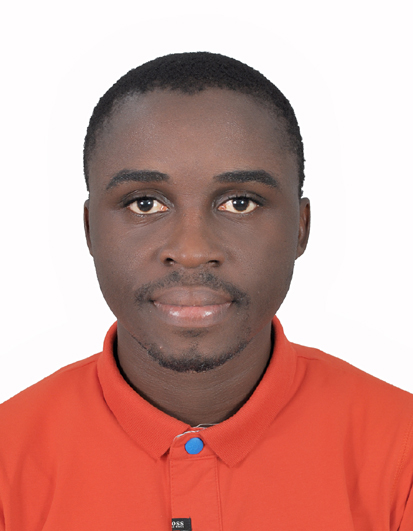
Mr. Kouakou Kan Anselme KOUAME — Ghana
Mohammed VI Polytechnic University, Benguérir, Morocco
Mr. Kouakou Kan Anselme KOUAME is a M.Sc. student at Mohammed VI Polytechnic University. The title of his research project is “Evaluating and Geospatial Analysis of Variability in Response of Maize Yield to Fertilizer (NPK) using Modeling in Ghana.”
“Several studies in Ghana have shown that maize grain yields rarely exceed 1 t/ha in farmers’ fields and application of compound N, P, and K fertilizers did not translate into a substantial increase in crop productivity,” explains Mr. Kouakou. “Yield responses to fertilizer application (organic, inorganic) showed that grain yield responses to fertilization are highly variable across Ghana. Some locations showed significant grain yield responses (4 t/ha) to fertilizer, while other areas had low grain yield responses (0.5 t/ha) to fertilizer.”
Kouakou’s project is addressing the question of why the response of maize yields fluctuates so greatly?
He is using model-based approaches to identify and explain the causes of yield variability, and assess the requirements for reducing the current yield gaps. Combining a crop and soil fertility model (QUEFTS), multiple linear regression, and a machine learning model algorithm with geospatial modeling to produce yield maps could be a way to understand the variability of maize yield response across agro-ecological zones in Ghana and then, help to make decisions regarding farmer nutrient management practices.
Kouakou’s current interest is to use modeling and advance data science tools in my daily work to improve plant nutrition and my future career objective is a position in research and development, and leadership in crop and soil fertility management for improved sustainable agricultural productivity in developing countries.
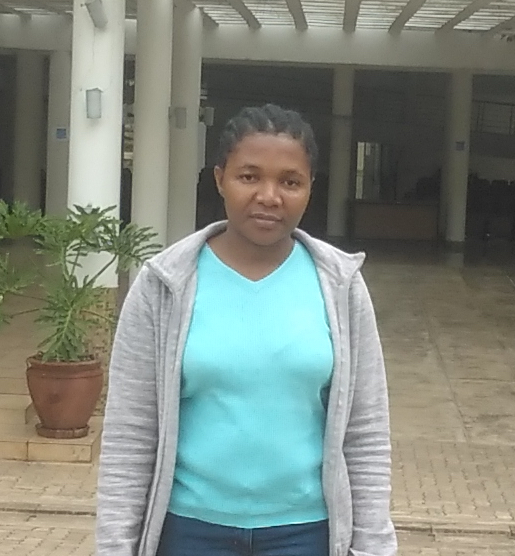
Ms Lydia Mhoro — Tanzania
The Nelson Mandela African Institute of Science and Technology, Arusha City, Tanzania
Ms. Lydia MHORO is a Ph.D. student working at the Nelson Mandela African Institute of Science and Technology in Tanzania.
Her dissertation is on the “Assessment of Soil Fertility Management under Nutrient Transfer Farming Systems on the Slopes of Mt Kilimanjaro, Tanzania.”
The slopes of Mount Kilimanjaro are the most important areas both in terms of socio-economic development and in ecological succession. For more than a century, the majority of farming activities concentrated in the highlands where farmers grew banana, coffee and fodder trees integrated with goats and dairy cattle kept in zero grazing. After years of this practice, the human population has grown immensely, imposing high pressure on the available agricultural lands and resources. This scenario has forced farmers to look for new farming areas in the low land to supplement food and fodder.
“In the lower lands, farmers grow mainly maize and beans,” explains Ms. Mhoro. “Unfortunately, farmers harvest both crop grains and residues and transfer to highlands to supplement the deficit, which has led to a huge land and posed many challenges to people’s livelihood, among others, decline in soil fertility, which in turn results in low crop yields.”
Lydia’s study aims to quantify and analyze nutrient and economic flows between lowlands and higher land farms found on slopes of Mount Kilimanjaro, thereby assessing their importance and develop strategies to improve productivity of the ongoing practices. To achieve this, the study will 1) assess the nutrient status in respective selected inter-connecting farms with nutrient transfers between them 2) quantify nutrient budgets for major crop nutrients like N, P, K, Ca, Mg and S in order to establish budgets weighed against nutrient stocks, 3) analyze the cost/benefit relationships of the existing farming system, and 4) develop strategies on the environmental and economic sustainability of the existing farming system.
“At the end of this study we expect smallholder farmers in Kilimanjaro Region, Tanzania, will increase crop production tonnage to meet food insecurity and tackle the financial challenges, said Mhoro. “Though this study farmers will be able to understand and manage the natural resources in general and soil nutrients in particular for their farming systems.”
Lydia’s future goal is to become a reputable professor by contributing new knowledge and solutions to the scientific community through high impact factor peer-reviewed journals. She wishes to write and lead winning agriculture-oriented research projects and mentor more students and upcoming scientists.

Mr Alex MUKIIBI — Uganda
University of Pretoria, South Africa
Mr. Alex Mukiibi is a PhD student at the University of Pretoria, South Africa.
His research program is focused on “Integrating Remote Sensing and Crop Growth Simulation to Assess Resource use Efficiency of Irrigated Irish Potato.”
The research mainly seeks to employ remote sensing techniques such as the use of drones and satellite images to obtain crop and soil parameters required for accurate crop growth and soil water model operation.
“Accurate soil-crop modelling will provide adequate information for selection of the most appropriate water and nutrient management interventions of irrigated potato grown on sandy soils,” said Mr. Mukiibi. “This will improve water and nutrient use efficiency of potato, which is important for both economic and ecological sustainability.”
During his free time, Alex enjoys attending online training, workshops and watching YouTube videos on crop modelling and computer programming software such as R, SNAP Sentinel-2 Satellite, to gain more skills required to reach his research goals. Upon his PhD completion, he wants to work on post-doctoral research to enhance the use of remote sensing for timely detection of plant nutrient status and related nutrient deficiencies, to facilitate timely site-specific nutrient management. Throughout his tenure at the university, Alex has been serving as a student tutor and/or teaching assistant, so, he aspires to lecture in a university as well as to work in extension programs with farmers.
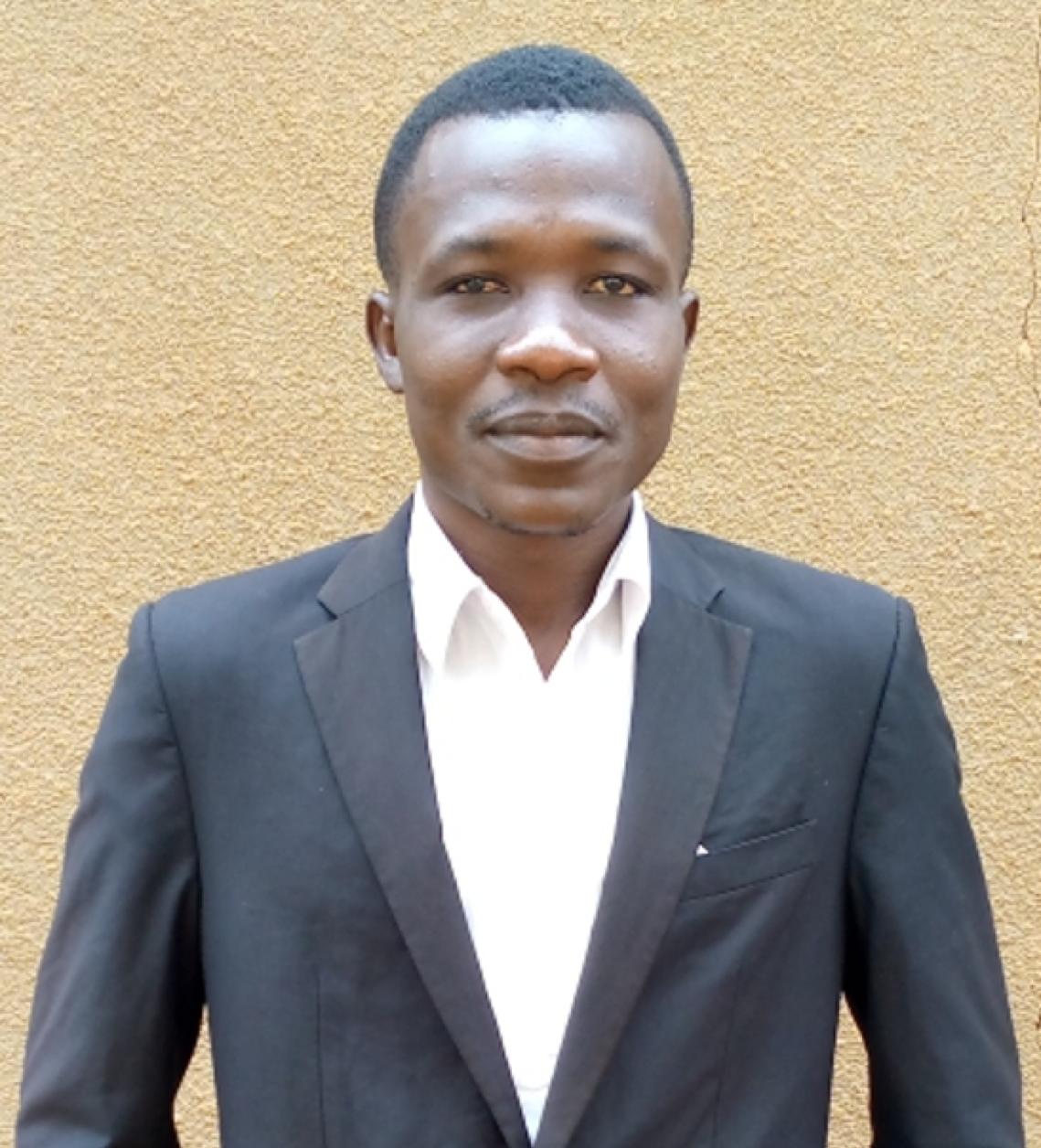
Mr. Adama SAGNON — Burkina Faso
Doctoral School of Sciences and Technologies of Joseph KI-ZERBO University in Burkina Faso
Mr. Adama SAGNON is a Ph.D. student at the Doctoral School of Sciences and Technologies of Joseph KI-ZERBO University in Burkina Faso.
His research program is working on the “Improvement of Burkina Phosphate Rock Solubilization by Biological Process: Effect of Microorganisms, Indigenous of Plant Rhizosphere Soil.”
This work aims to enhance the agronomic effectiveness of the low-grade Burkina Faso Phosphate Rocks. Via co-composting of phosphate rocks with organic residues and potential beneficial microbes, he expects to increase phosphate solubilization and obtain fertilizers with a higher available phosphorus content.
Specifically, Adama is aiming to implement organo-mineral phosphate fertilizers that support the principle of sustainable agriculture in the African agroecosystems. In this process, phosphate-solubilizing microorganisms from the rhizosphere of sole sorghum or compost-amended sorghum will be isolated and characterized. Their potential to improve crop yield will also be studied. Finally, he will determine the potential and mechanisms of phosphate solubilization by microorganisms isolated from phosphate rock-amended composts and sorghum rhizosphere.
“Plant-microbe interactions have led to a dynamic sector, as soil and plant microbiome activities direct all soil biogeochemical transformations and support plant growth,” explains Mr. Sagnon. “We are very much interested to understand better the different cross-talks between plants and microbes and the mechanisms by which microorganisms enhance soil nutrients (P, N, K, etc.).”
During the doctoral studies, Adama hopes to gain more knowledge in these issues to be well prepared to play a significant role in improving food security in Africa. “Since microbiology grows fast nowadays due to the availability of new bioinformatics packages, I wish to access bioinformatics training to analyze the biological data better that our work will generate.”
In the future, Adama would like to be part of a national or international research institute to better share the acquired knowledge with the scientific and agricultural community.
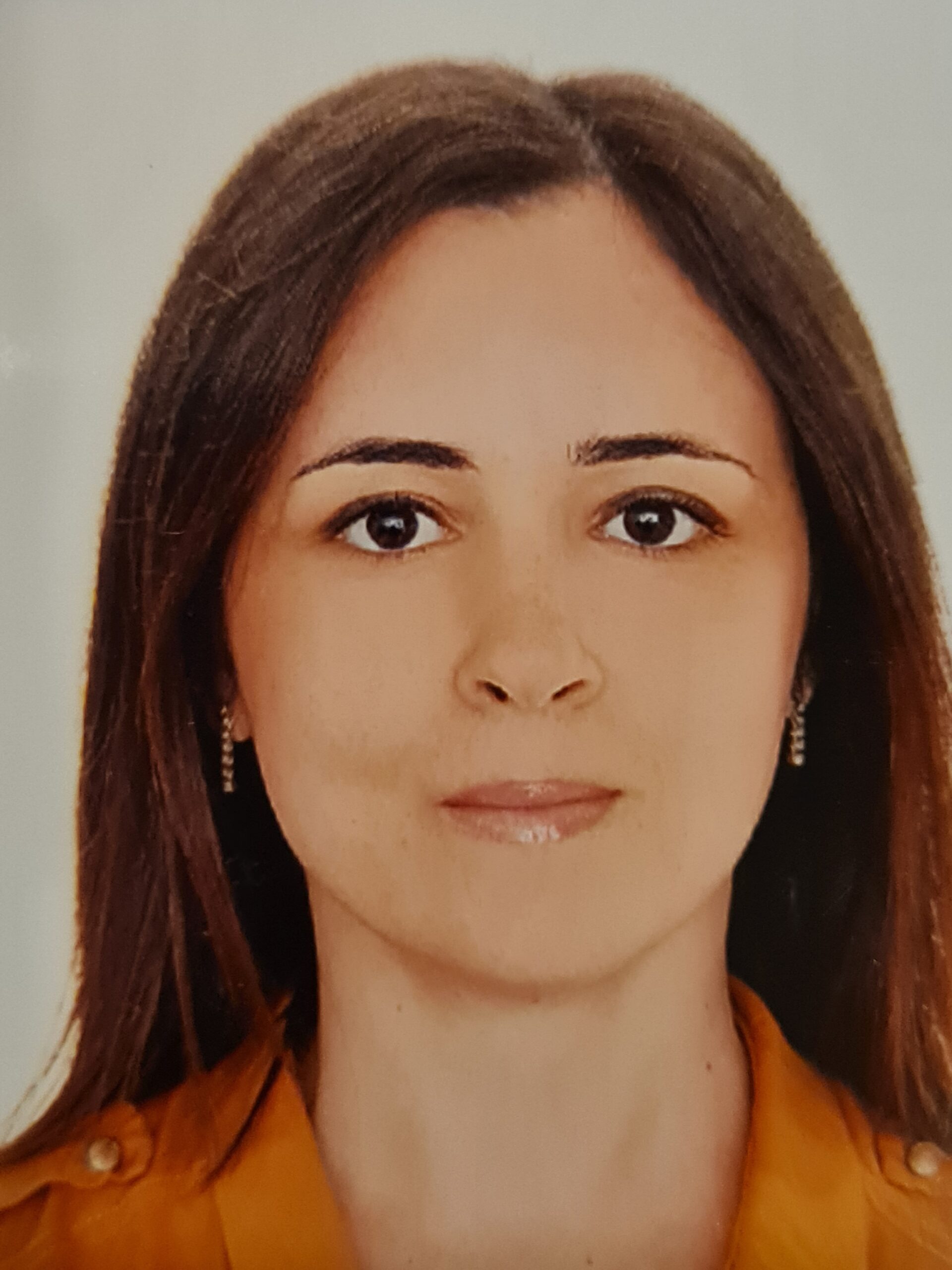
Ms. Imen ZOUARI — Tunisia
Higher Institute of Agronomy, Chott-Mariem (University of Sousse) - Tunis, Tunisia
Ms. Imen Zouari is a Ph.D. student enrolled in the Higher Institute of Agronomy, Chott-Mariem (University of Sousse).
Imen’s research program is entitled “Improving the Production and the Quality of Products of the Olive Tree through the Use of Biostimulant Foliar Fertilizers: Agronomic, Biochemical and Physiological Approach.”
The research aimed at testing different fertilizers and biostimulants with a well-defined mineral composition, which are used alone or in combination and applied at different stages of the biological cycle of the olive tree. These products were foliar applied during two successive years on rain-fed olive trees of the Chemlali variety in central Tunisia.
The objectives of the work were to study the effects of these applications on the mobilization of minerals and carbohydrates reserves, on the quality of the products (fruits and oil) and on the agronomic potential of the olive tree during three years. This study brought out the impact of foliar fertilization on the mineral status and elucidated an association between nutrients and sugar metabolism which play a role in the tree’s resistance to the stresses related to the hard conditions of our site experiment.
“This work showed that the fertilization management could be highlighted in order to enhance nutraceutical value of fruits and improve olive oil quality,” explains Ms Zouari. “I would like to focus my research in the mineral nutrition of olive trees in order to offer solutions to the farmers for an efficient environmental fertilization and improvement of food products.”
Imen’s ambitions are related to the production of a quality olive oil as well as to the search for new natural substances, in particular phenolic ones, in olive fruits and olive oil having mainly antioxidant biological activities, which are very important substances for human health.

